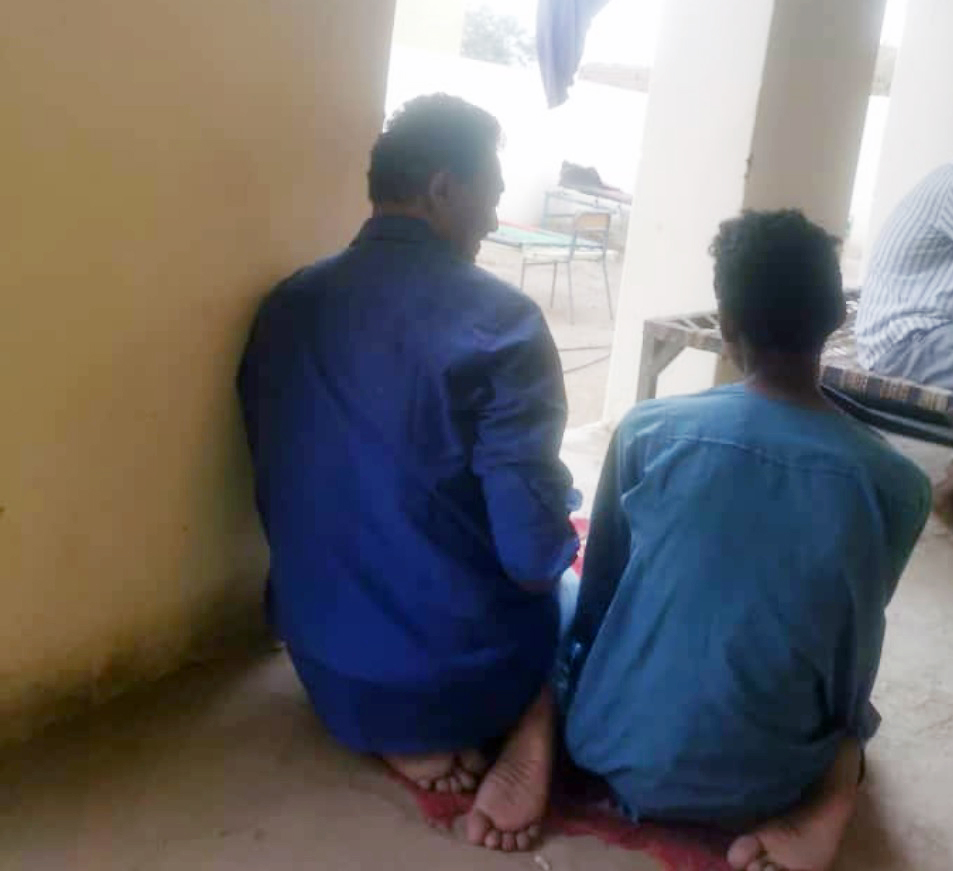
Trapped with Their Children - 2
Moatinoon - Mohammed Osman
Here, all the neighborhoods of Khartoum come together. From Al-Halfaya to Al-Shajara, and from Al-Thawra to Al-Mamoura, with the complete absence of peripheral areas like Al-Kalakla, Al-Haj Youssef, and Mayu Umm Bada. Fathers embrace their children, watching their every move during the day and sleeping beside them at night.
It is clear that strong bonds have formed between them. Ahmed, 22 years old, said during a late-night chat in the courtyard with his cousin, I never thought my father could be this affectionate. I once witnessed, during a shortage of food, a father secretly slipping the last piece of bread into his sons hand, then rising from the floor dining table, repeating, May God preserve it as a blessing.
The whole story revolves around the Egyptian authorities insisting on the conditions they set in an agreement signed with the Sudanese government. According to these conditions, Sudanese citizens between the ages of sixteen and fifty are required to obtain an entry visa to Egypt, while other categories are exempted.
Since many Sudanese people from the south long for the north, they have headed towards Egypt. The congestion at the borders and in northern cities is due to women and youth not having passports. Those who do possess passports have not obtained visas, and those who managed to get visas had them canceled due to cases of forgery. The stranded parents with their children see it as layer upon layer of injustice, as they believe.
Abu Abdullah, Khalids father, said that his son, who is just over sixteen and two months old, can no longer be added to his passport without a travel document. Khalid added his younger daughters and children to his passport because their mother does not have a passport. He sadly remarked that if their mother had obtained a travel document, she could have traveled with the rest, but as for him, he has to wait with Abdullah until he gets a visa. He murmured with dignity, Its destiny; some fates are lighter than others.
I suggested to Fathi, when he was burdened with worry and grief over his daughters and their mother on the other side of the city, Bring the women and girls, let the people of Dangla in Al-Zahraa, 2 kilometers away from the men and boys in Sonasel, take care of them. I suggested accompanying him to where they are, to ease their burden and bring them relief.
On the way, he recounted the great escape from his home on Street 60, saying, I had no intention of leaving, but they burned the Central Bureau of Statistics next to my house. Fathi has four daughters and one son who sticks to him like his shadow. He mentioned that his daughters havent tasted food for two days due to fear and panic, and neither he nor their mother ate as a result. Fathi intends to add the girls to their mothers passport if circumstances allow and stay alongside Mohammed until things become easier.
Here, no one owns anything for themselves. They coexist with the current situation with patience and conviction. They tell their stories mixed with sorrow, sadness, and a hint of anger, waiting for the borders to open or for the war to end.



